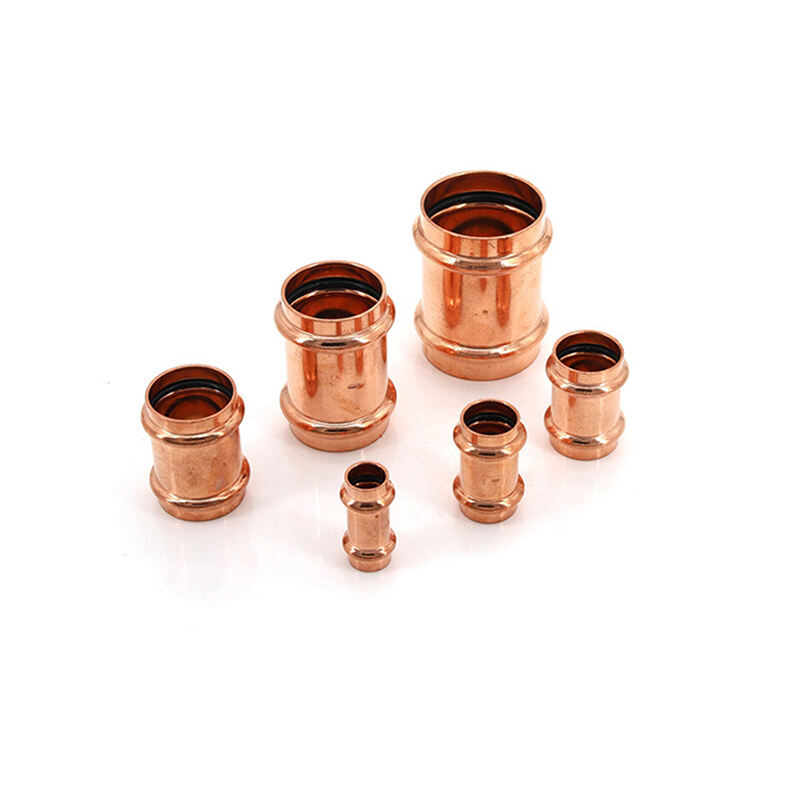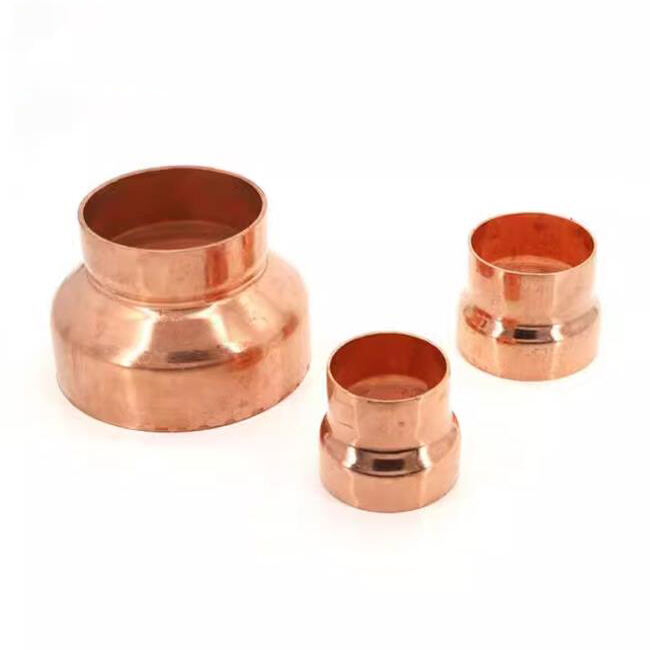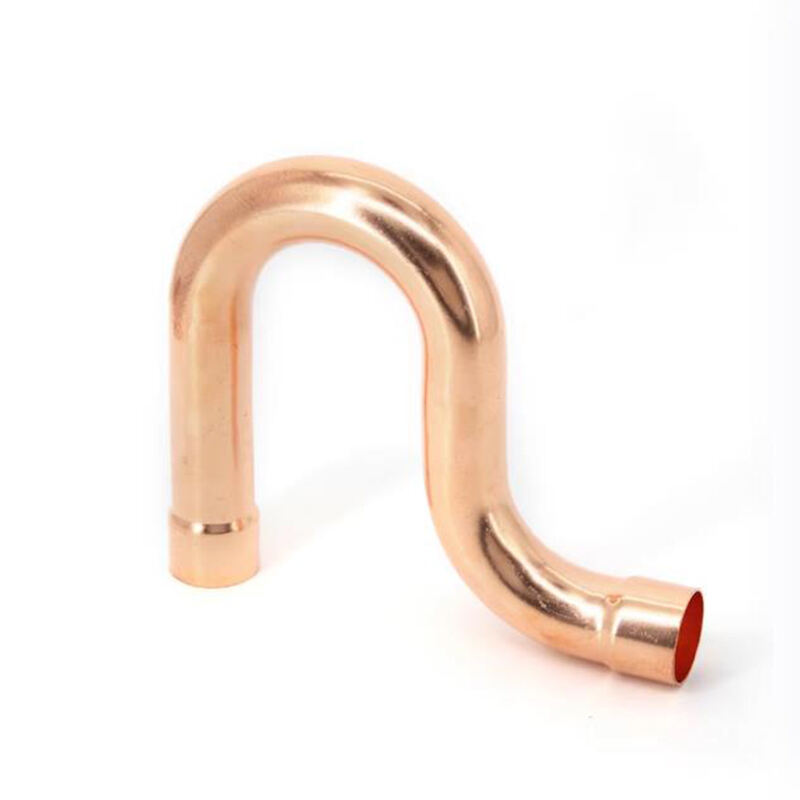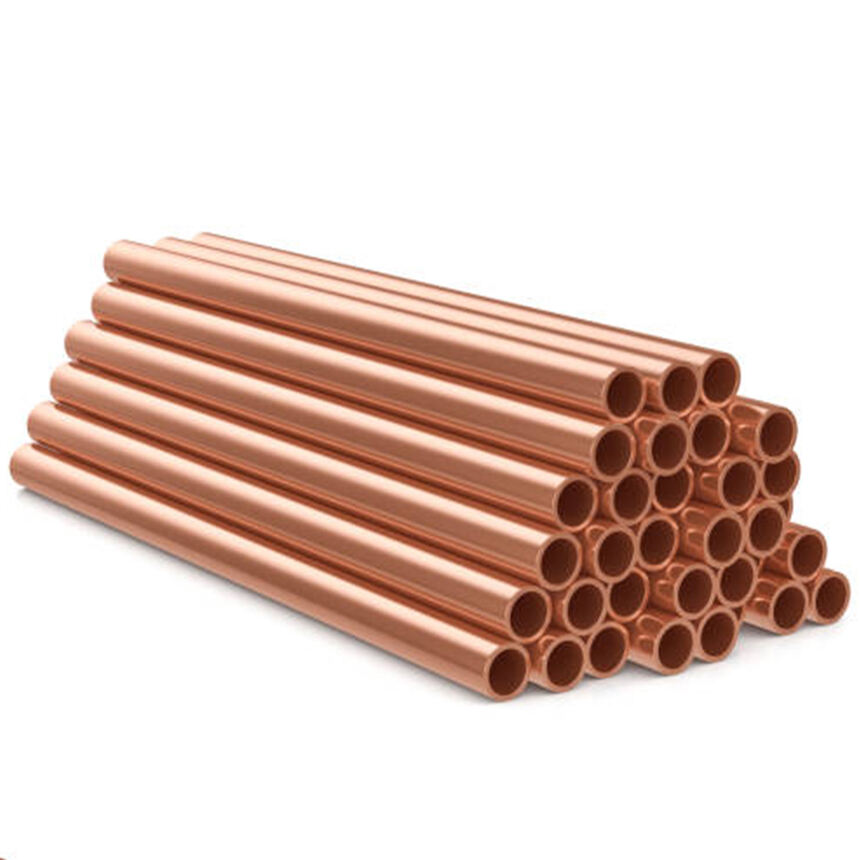Durability and Longevity of Copper Pipes
Corrosion Resistance in Harsh Conditions
Copper pipes stand out because they resist corrosion so well, thanks to the natural oxide layer that forms on their surface over time. They hold up really well in tough conditions, especially near coastlines where saltwater would quickly eat away at most other pipe materials. Research indicates these copper pipes can last somewhere around 50 years before showing much wear and tear, which is why many construction professionals go with copper when planning something meant to last decades. Plus, copper has those helpful antimicrobial qualities that cut down on biofilm buildup, which means less corrosion overall. This makes copper pipes not just durable but also pretty reliable across different kinds of installations throughout the building industry.
Heat Tolerance for High-Temperature Applications
Copper pipes stand out because they handle heat really well, which makes them great choices for systems needing to survive high temps. Think about hot water lines or certain industrial setups where things get pretty warm. Plastic options often melt or break down when exposed to heat for long periods, but copper just keeps going strong. Some tests actually show copper can take temperatures over 200 degrees Fahrenheit without any issues to its structure. That kind of reliability explains why plumbers and engineers keep turning to copper for all sorts of heating applications. Not only does it work better, but it also helps maintain system safety over time.
50+ Year Lifespan Compared to Alternatives
Industry stats show copper pipes last roughly twice as long as plastic or PVC options, which translates into big money saved over time. Properly installed copper systems rarely develop leaks, something many building owners learn the hard way when cheaper materials start failing around year ten. The longer life span cuts down on replacement work and all those extra expenses that come with it. For businesses looking at their bottom line while still wanting reliable infrastructure, copper makes sense both practically and economically in the long run.
Environmental Sustainability Benefits
100% Recyclability and Reduced Waste
Most people know copper pipes come with some serious green credentials, mainly because they can be recycled over and over again without any loss of quality. Take plastic or PVC pipes for instance these just end up in landfills after one use while copper gets reborn time and time again. The Copper Development Association actually points out that when we recycle copper instead of digging up new stuff from mines, we cut down on both waste and the amount of energy needed for production which obviously means lower carbon emissions too. Going the route of recycled copper makes sense if someone wants to shrink their environmental footprint. Construction companies and plumbers who switch to recycled options aren't just saving money they're also doing their part for the planet in pretty much every building project they work on.
Non-Toxic Material for Potable Water Systems
Copper stands out as non toxic, which makes it pretty safe stuff for drinking water systems. It actually meets all sorts of health standards set by places like the EPA without any issues. What sets copper apart from other materials on the market is that it doesn't release harmful substances into the water supply, so people get what they pay for when it comes to clean drinking water. Research has shown something interesting too copper has these natural antimicrobial qualities that help stop bacteria from growing in pipes. That's why many plumbers still prefer copper for installations where keeping things hygienic matters most, especially in hospitals or schools where kids might be getting sick easily otherwise.
Energy Efficiency in Production and Installation
Copper stands out when it comes to energy efficiency throughout both manufacturing and installation stages, which gives it some serious environmental advantages. Making copper pipes actually takes less energy compared to materials like PVC or steel, cutting down on carbon emissions during production. Installers will tell anyone that working with copper systems is much smoother too. The fact that most fittings and connectors come ready made means less time spent on site and fewer mistakes that lead to wasted materials. And let's not forget about how long copper lasts. These pipes can easily handle 50 years or more without needing replacement, so there's no constant drain on resources for repairs or new installations. That kind of longevity translates to real savings in energy costs over the life of any building project.
Health and Safety Advantages
Antimicrobial Properties for Cleaner Water
Copper pipes naturally fight against microbes, making them really good at keeping water clean in homes and businesses alike. Research from the Centers for Disease Control shows copper actually kills dangerous germs like E. coli and salmonella on contact, so the water stays safer for people to drink. The way copper works against bacteria isn't just important for health reasons either. Many plumbers prefer copper over plastic options because plastics don't usually provide this kind of protection. While plastic might be cheaper upfront, copper's ability to resist microbial growth means fewer problems down the line with contaminated water supplies.
Fire-Resistant Characteristics
Copper piping has natural fire resistance which gives buildings an extra layer of protection against fires. Most other materials will catch fire when exposed to intense heat, but copper doesn't break down or melt easily during flames, so it remains intact even in worst case scenarios. Many local building regulations actually require certain types of non-flammable pipe materials for new constructions. Copper works well here because it melts at around 1980 degrees Fahrenheit, way higher than most plastics that start to soften around 300-400 degrees. This makes copper pipes much safer long term, especially considering how common plastic piping failures become after repeated exposure to heat sources throughout a building.
Lead-Free Connections with Brass Fittings
Today's brass fittings for copper pipes are made without lead, which means no lead gets into drinking water systems. The Environmental Protection Agency has put rules in place limiting how much lead can be used in plumbing work, making copper piping even more important for keeping water safe to drink. Copper pipes work really well with these new lead-free brass fittings, so plumbers can meet all the health code requirements while still getting clean drinking water out of the tap. Homeowners looking for good quality plumbing should consider copper connections paired with brass fittings since this combination creates both a strong connection and protects against harmful substances entering their water supply.
Versatility in Modern Plumbing Systems
Compatibility with Brass Plumbing Fittings
Copper pipes work really well with brass plumbing fittings because they last long and don't rust easily. When these materials connect properly, plumbers get much more freedom during installations. They can create custom setups that actually fit what each job requires instead of forcing everything into standard shapes. Brass fittings help copper systems last longer too since they reduce the chance of rust forming where the pipes join together. For anyone dealing with plumbing projects that need something sturdy and reliable, this combination has become pretty much standard practice across most modern construction sites.
Type K/L/M Pipes for Specific Applications
Copper shows its versatility through different types like K, L, and M, which have varying wall thicknesses for specific jobs. The thick walls of Type K make them great for underground work or tough conditions, while Type M with thinner walls works better for lighter tasks around the house. This range lets plumbers pick the right type depending on what they need to install. When professionals choose wisely between these options, it really makes a difference in how well the plumbing system performs over time. Copper pipes end up working better and lasting longer when matched correctly to their intended use in residential or commercial settings.
Seamless Integration with HVAC Systems
Copper piping works really well with HVAC systems and handles both hot and cold water distribution pretty reliably. Because copper conducts heat so efficiently, it helps move temperature changes through buildings faster than other materials can manage. Most major plumbing companies recommend copper when dealing with pressure fluctuations since it holds up better over time compared to alternatives. Copper's ability to fit right into existing HVAC setups speaks volumes about its dependability. This makes the whole system run smoother while keeping temperatures stable whether in homes or office buildings across different seasons.
Cost-Effectiveness Over Time
Lower Maintenance vs. Plastic Alternatives
Compared to plastic pipes, copper ones just need way less maintenance because plastics tend to leak all the time and get damaged by stuff in the environment. Sure, putting in copper piping costs more upfront, but think about it long term when there's no need to keep fixing or replacing them every few years. Some folks in the business world say maintenance expenses for copper plumbing run around 30% cheaper than what they pay for plastic systems. Why? Copper doesn't corrode easily and lasts much longer, so buildings don't face constant interruptions from broken pipes. Most property managers will tell you this reliability makes all the difference in day to day operations.
Reduced Risk of Leaks and Repairs
Copper's durability means there's less chance of leaks happening, something that saves money on repairs and stops water from going to waste. Copper doesn't corrode easily like some other materials do, so it breaks down much less often than plastic pipes which tend to wear out with age or when exposed to pressure changes. Looking at the numbers, copper piping systems fail about 20 percent less frequently than their plastic counterparts according to various studies. The fact that copper lasts longer without needing fixes makes all the difference in expensive plumbing situations where even small interruptions can create big problems for businesses and homeowners alike.
Long-Term Value in Commercial Installations
Copper pipes tend to offer better value over time for commercial installations because they last longer and work reliably without issues. The math works out when looking at the big picture too. Sure, copper costs more initially compared to other options, but businesses save money in the long run since there's less need for repairs and replacements down the road. For companies operating in tough market conditions where every advantage counts, going with copper makes sense as it helps maintain consistent service quality which customers notice and appreciate. Most plumbers will tell anyone who asks that copper just doesn't fail like plastic alternatives do after years of use. So despite the higher initial price tag, many business owners find copper piping pays off handsomely when considering all those avoided headaches from leaks and breakdowns during normal operations.









